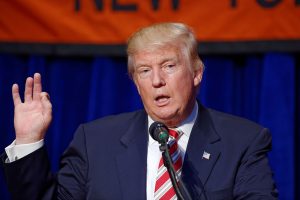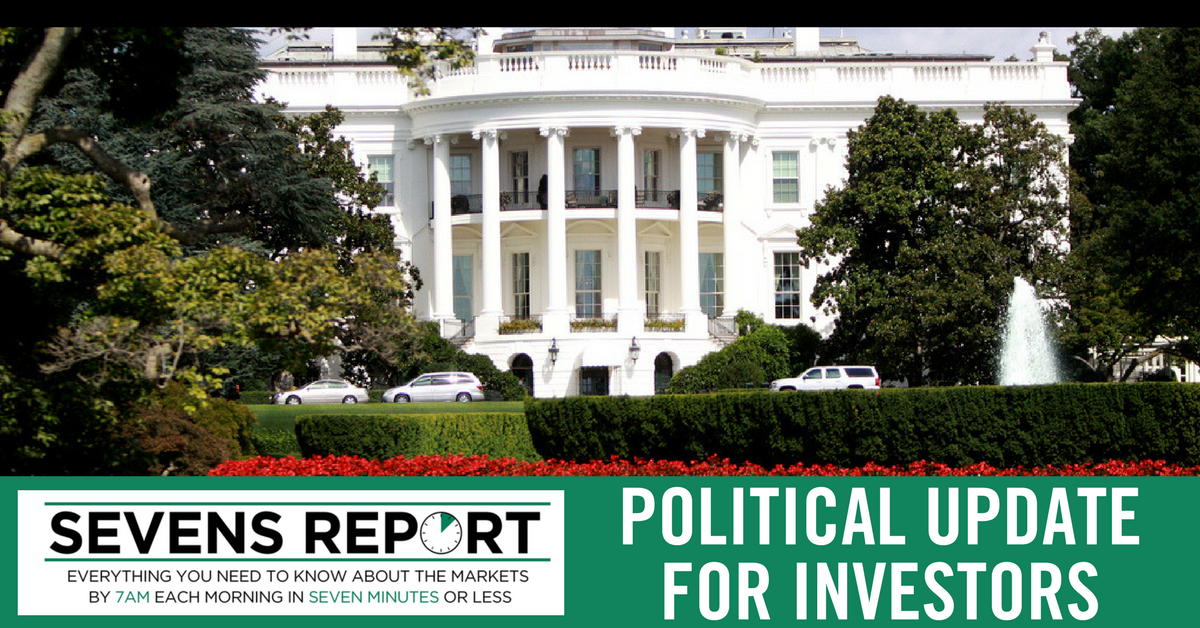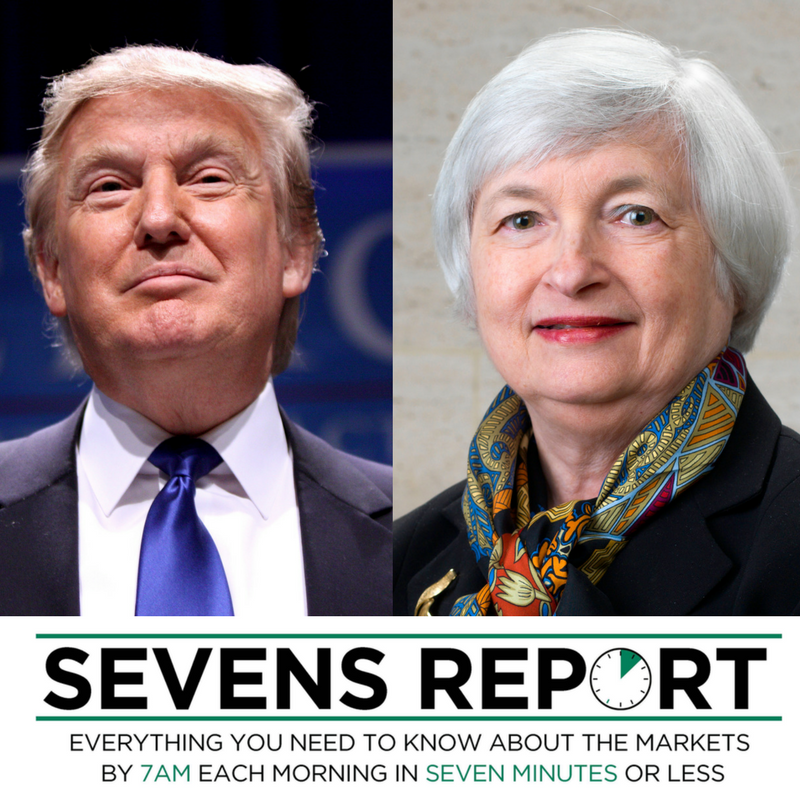Political Update: Stay Focused on Taxes, Not Impeachment
Join hundreds of advisors from huge brokerage firms like Morgan Stanley, Merrill Lynch, Wells Fargo Advisors, Raymond James and more… see if The Sevens Report is right for you with a free two-week trial.
Before getting into the market implications of the latest political headlines, I want to remind everyone that any political coverage I give in the Sevens Report is solely from the perspective of the markets, they don’t reflect my preference or lack of preference for any specific politician or party. My personal opinions are not important. What is important is giving you analysis that cuts through the steadily rising amount of sensationalist noise in the financial media (on both sides), and keeping you focused on what’s really moving markets.
That said, given the latest revelations on President Trump, I wanted to take a moment and push back on some of the sensationalism.
Specifically, I want to explain clearly that any talk of impeachment is not realistic in the near term. The reason is simple: Impeachment is a political process, not a legal process. The House of Representatives must start the impeachment process, and since it’s controlled by Republicans, short of having incredibly damning evidence against the president, that simply won’t happen.
In all likelihood, even if Robert Mueller’s commission finds that President Trump likely obstructed justice during the Russian investigation, the evidence would have to be unequivocally conclusive in order to cause the Republicans to impeach. That means we would have to have the equivalent of a video or audio tape of Trump telling someone to break the law.
Obstruction of justice, unlike perjury, is an opinion derived from conclusions; it’s not a hard and fast fact (i.e. you told the truth under oath, or you did not).
So, to be clear, impeachment of President Trump is very unlikely over the next 1.5 years, again because of political reasons, not legal ones (and to be fair to Republicans, Democrats wouldn’t impeach a president either without undeniable evidence).
Now, all this might change if the House changes hands in 2018, and frankly that’s more than possible. On average, the president’s party loses about 30 seats in the House in the first midterms, and the Republicans enjoy a 45 seat majority. So, if the average holds, it’ll be close. If the Democrats take control and this is still an issue, impeachment is a real risk… but that’s a problem for another day.
In the near term, the key is to stay focused on tax reform. Expectations are pretty low at this point, but the market does expect corporate tax cuts in 2018, and the ongoing Russia saga does continue to reduce the chances of that expectation being met.
The biggest risk to stocks continues to be if the market begins to factor in no tax reform in 2018. If that happens, it’ll be good for at least a mild pullback. Taxes, not Russia, remain the number one risk to this rally.
Cut through the noise and understand what’s truly driving markets, as this new political and economic reality evolves. Free trial: The Sevens Report.

 Join hundreds of advisors from huge brokerage firms like Morgan Stanley, Merrill Lynch, Wells Fargo Advisors, Raymond James and more… see if
Join hundreds of advisors from huge brokerage firms like Morgan Stanley, Merrill Lynch, Wells Fargo Advisors, Raymond James and more… see if  Case in point, Tuesday’s firing of FBI Director James Comey moved markets yesterday, and I wanted to cover what that means going forward (it’s a mild and potentially negative, but not a bearish game changer). Now, to be clear, the market is agnostic to the politics of this drama and as such so am I. Whether you or I think the firing was a coverup or justified, it matters not from a market standpoint, so as I always do with political coverage, I will strictly stick to market implications.
Case in point, Tuesday’s firing of FBI Director James Comey moved markets yesterday, and I wanted to cover what that means going forward (it’s a mild and potentially negative, but not a bearish game changer). Now, to be clear, the market is agnostic to the politics of this drama and as such so am I. Whether you or I think the firing was a coverup or justified, it matters not from a market standpoint, so as I always do with political coverage, I will strictly stick to market implications.
 President Trump, in an interview with the WSJ yesterday, appeared to change his policy on the Fed and interest rates. Specifically, Trump said he thought the dollar was getting too strong, that he favored a low interest rate policy, and he was open to keeping Yellen as Fed Chair. It was the second two comments that caught markets attention and caused a “dovish” response in the dollar and bond yields (both of which fell).
President Trump, in an interview with the WSJ yesterday, appeared to change his policy on the Fed and interest rates. Specifically, Trump said he thought the dollar was getting too strong, that he favored a low interest rate policy, and he was open to keeping Yellen as Fed Chair. It was the second two comments that caught markets attention and caused a “dovish” response in the dollar and bond yields (both of which fell).